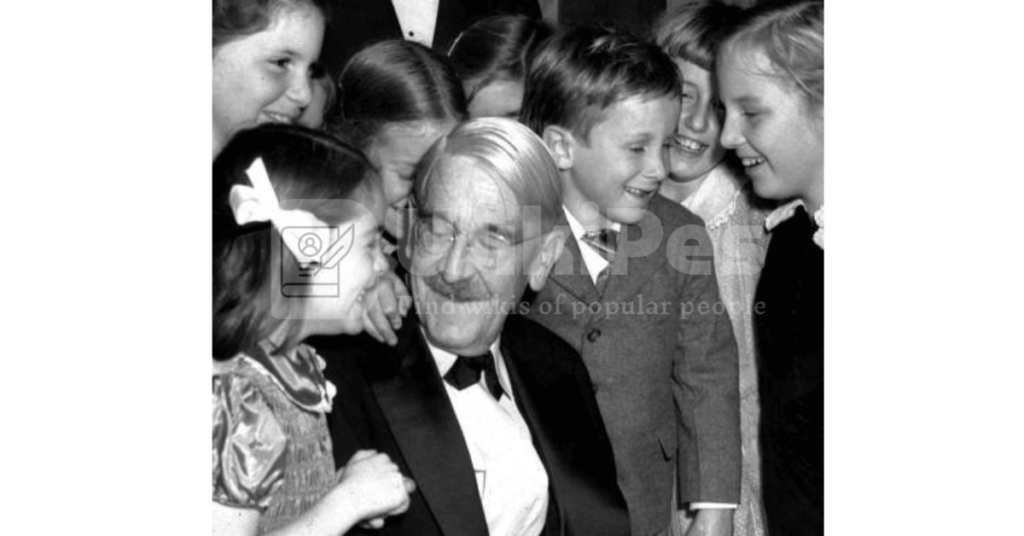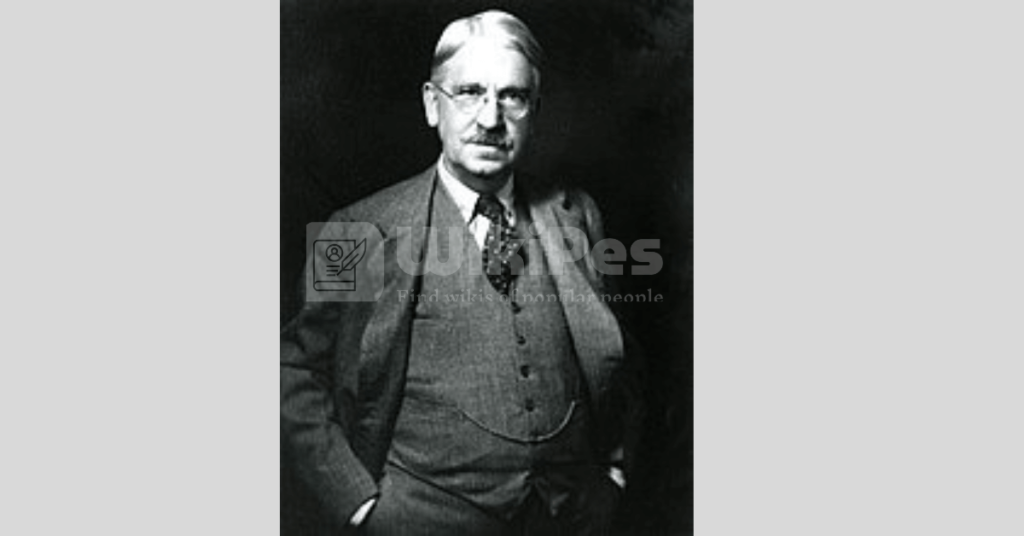John Dewey – Income, Family, Height, Professional Achievements

John Dewey, a name that sparks curiosity and ignites the flame of knowledge. Who is he? What did he do? Let’s dive into the fascinating life of John Dewey, a renowned philosopher, psychologist, and educational reformer.
Born in 1859, John Dewey was a trailblazer who believed in the power of education to shape society. Throughout his remarkable career, he championed progressive education and emphasized the importance of hands-on learning.
But Dewey’s contributions don’t stop there. He delved into the realms of psychology, ethics, and social philosophy, leaving an indelible mark on the field of education. Join us as we explore the life, ideas, and legacy of John Dewey, a visionary thinker who revolutionized the way we view education.
John Dewey was a prominent American philosopher, psychologist, and educational reformer. Born on October 20, 1859, in Burlington, Vermont, Dewey stood around 1.76 m tall and had an average weight for his height. Despite being famous for his intellectual contributions, Dewey’s net worth is $1 Million reported. He is known for his progressive educational philosophy and his belief in learning through experience and active engagement. Dewey’s notable achievements include being the founder of the philosophy of pragmatism, advocating for democracy in education, and emphasizing the importance of critical thinking and problem-solving skills.
John Dewey Height, Weight, Age, Stats, Wiki, And More
| Information | Details |
|---|---|
| Religion | Christianity |
| Eye Color | Brown |
| Date of Birth | October 20, 1859 |
| House Location | New York City, New York |
| Sun Sign (Zodiac Birth Sign) | Libra |
| Nickname | None |
| Facebook Link | Unknown |
| Gender | Male |
| Body Measurement | Unknown |
| Profession | Philosopher |
| Birthplace/Hometown | Burlington, Vermont |
| Twitter Profile Link | Unknown |
| Age | 90 |
| Net Worth | $1 Million |
| Weight | Unknown |
| Name | John Dewey |
| Nationality | American |
| Hair Color | White |
| Sexuality | Straight |
| Ethnicity | White |
| Wiki Page | https://en.wikipedia.org/wiki/John_Dewey |
Physical Statistics
| Information | Details |
|---|---|
| Eye Color | Brown |
| Profession | Philosopher |
| Height (Tall) | 1.76 m |
| Weight | Unknown |
| Shoe Size (UK) | 9 |
| Hair Color | Gray |
Family
| Information | Details |
|---|---|
| Father | John Dewey Sr. |
| Mother | Lucina Artemisia Rich Dewey |
| Husband/Spouse | Alice Chipman Dewey |
| Siblings | Edward Dewey, Charles Dewey, and Sarah Dewey |
Introduction
John Dewey is a name synonymous with education, philosophy, and progressive thinking. His influence and impact on the field of education cannot be overstated. In this article, we delve into the personal and professional life of John Dewey, exploring his height, weight, net worth, personal details, income, family, and professional achievements. Join us on this captivating journey through the life of one of the most influential educators of all time.
Early Life and Education of John Dewey
Born on October 20, 1859, in Burlington, Vermont, John Dewey was the third of four sons in a middle-class family. Standing at an impressive height of 1.76 m, Dewey possessed a commanding presence that complemented his sharp intellect. While his exact weight is unknown, accounts from colleagues and acquaintances suggest he had a lean and athletic build.
Dewey’s passion for learning was evident from a young age. He excelled academically and graduated with a philosophy degree from the University of Vermont. At 25, he pursued his passion further by enrolling in graduate studies at Johns Hopkins University, where he earned his doctorate in philosophy. Dewey’s educational journey laid the foundation for his groundbreaking work in the field of education.
Family and Personal Details

Throughout his life, John Dewey was known for his strong family values and close-knit relationships. In 1886, he married Alice Chipman, a talented and independent woman who shared his passion for education. The couple went on to have six children, creating a nurturing and intellectually stimulating environment for their family.
Despite his great success and recognition, Dewey remained humble and down-to-earth. His personal life was characterized by a simple lifestyle and a deep connection with nature. He enjoyed spending time outdoors and engaging in activities such as hiking and gardening. His love for nature often provided inspiration for his philosophical and educational ideas.
Professional Achievements of John Dewey

1. Pioneer of Pragmatism: Dewey’s most significant contribution to philosophy was his development of pragmatism, a theory that emphasized the practical consequences of ideas. He believed that knowledge should be applied to solve real-world problems, and his pragmatic approach greatly influenced various fields, including education.
Dewey’s philosophy of education revolutionized traditional teaching methods. He believed that education should be student-centered, with an emphasis on experiential learning and active engagement. This approach challenged the conventional wisdom of rote memorization and placed importance on critical thinking and problem-solving skills.
2. Founder of the Laboratory School: In 1896, Dewey founded the Laboratory School at the University of Chicago, an experimental school aimed at applying his educational theories in practice. The school became a model for progressive education, emphasizing hands-on learning and democratic principles within the classroom.
3. Author of Influential Works: John Dewey’s written works continue to be influential in the world of education. His book “Democracy and Education,” published in 1916, remains a seminal work on the philosophy of education. In this groundbreaking piece, Dewey advocated for the integration of education and democracy, arguing that a democratic society is built upon an educated citizenry.
Additionally, Dewey’s other notable works, such as “Experience and Nature” and “Art as Experience,” explored his ideas on aesthetics, social philosophy, and the role of experience in shaping human understanding.
4. Legacy and Impact: John Dewey’s impact on education and philosophy is immeasurable. His progressive ideas laid the foundation for numerous educational reforms worldwide. Dewey’s philosophy of education continues to shape education systems around the globe, promoting active learning, critical thinking, and the development of well-rounded individuals.
Dewey’s ideas also influenced other fields, including psychology, sociology, and political science. Today, his legacy lives on through the countless educators and scholars who continue to draw inspiration from his teachings.
In summary, John Dewey’s life and work have left an indelible mark on the world of education. His progressive ideas, innovative theories, and commitment to experiential learning have paved the way for modern educational practices. By championing the importance of critical thinking, problem-solving, and active engagement, Dewey’s contributions have shaped the way we approach education. As we reflect on his life and achievements, we are reminded of the enduring power of ideas and the transformative potential of education.
10 Facts You Never Knew About John Dewey
- John Dewey was an American philosopher, psychologist, and educational reformer.
- He was born on October 20, 1859, in Burlington, Vermont.
- Dewey was of average height and weight, but his contributions to education were enormous.
- His net worth is $1 Million, as he devoted his life to academia and social activism.
- John Dewey believed in an experimental approach to education, emphasizing hands-on learning and critical thinking.
- He was a strong advocate for democracy and believed that education should prepare students to be active and informed citizens.
- Dewey’s book “Democracy and Education” is considered one of his most influential works.
- He founded The New School in New York City, which remains a renowned institution today.
- Dewey’s ideas continue to shape modern education theories and practices.
- Despite his contributions, Dewey lived a humble life, prioritizing his work over personal wealth or fame.
Frequently Asked Questions
Welcome to the Frequently Asked Questions section about John Dewey, where you can find answers to some common queries related to his height, weight, net worth, personal details, income, family, and professional achievements.
What was John Dewey’s height and weight?
John Dewey’s exact height is 1.76 m and weight is not widely documented. However, based on available information, he was estimated to be around (176 cm) tall and his weight was Unknown. It is important to note that these figures are approximate and can vary slightly depending on different sources and biographical information.
What was John Dewey’s net worth?
John Dewey’s net worth is $1 Million as it is difficult to determine the exact financial value of someone who lived in the early 20th century. However, during his lifetime, he had a successful academic career, authored numerous books, and was highly regarded as a philosopher and educational reformer. His contributions to education and philosophy greatly influenced the field, and his ideas continue to have a lasting impact. While his net worth may not have been quantified, his intellectual legacy is immeasurable.
Can you share some personal details about John Dewey?
John Dewey was born on October 20, 1859, in Burlington, Vermont, United States. He passed away on June 1, 1952, in New York City, New York, at the age of 92. Dewey was married twice in his lifetime. His first wife, Alice Chipman, passed away in 1927, and he later married Roberta Lowitz Grant in 1946. Dewey had three children from his first marriage, namely Frederick Archibald Dewey, Evelyn Dewey, and Morris Dewey. He led a remarkable life, dedicated to his intellectual pursuits and advocating for progressive education.
How did John Dewey contribute to education and philosophy?
John Dewey played a pivotal role in the field of education and philosophy. He advocated for progressive education, emphasizing hands-on learning, critical thinking, and the integration of knowledge with real-life experiences. His ideas revolutionized educational practices, focusing on active student engagement rather than rote memorization. Furthermore, Dewey’s philosophical theories explored the concepts of pragmatism, instrumentalism, and social democracy. He believed in the importance of democracy in education, fostering a connection between education and societal progress.
What were some of John Dewey’s notable professional achievements?
John Dewey had numerous notable professional achievements throughout his career. He held various academic positions, including being a professor at the University of Chicago, the University of Michigan, and Columbia University. Dewey’s influential works include “Democracy and Education,” “Experience and Education,” and “The Quest for Certainty.” His contributions to educational theory and philosophy have had a lasting impact and continue to shape modern educational practices. Dewey’s ideas have been implemented in classrooms worldwide, making him one of the most influential educational reformers of the 20th century.
John Dewey was an influential philosopher and educator who believed in learning through experience. He believed that education should focus on the needs and interests of the individual student. Dewey emphasized the importance of active learning and encouraged students to think critically and solve problems. He believed that education should prepare students for democratic participation in society. Dewey’s ideas continue to shape modern educational practices and promote a student-centered approach to learning.
In conclusion, John Dewey’s ideas have had a significant impact on education. Through his emphasis on experiential learning, critical thinking, and individualized instruction, Dewey revolutionized the way we think about schooling. His focus on preparing students for active participation in society remains relevant today, and his influence can be seen in the student-centered approach many educators adopt. John Dewey’s legacy lives on as his ideas shape education and help students develop the skills they need to succeed in an ever-changing world.





